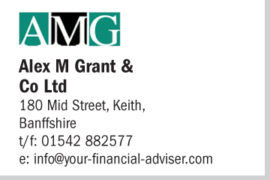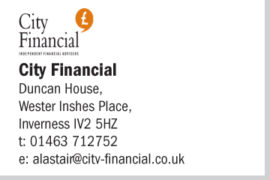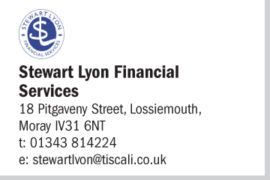David McConachie of Campbell & McConachie explains how it is possible to earn returns while making an impact.
Most people invest because they want their money to grow – to prepare for the future, to save up for a major purchase, or to provide a comfortable lifestyle for their family.
That might seem at odds with the idea of putting your money towards a good cause, and creating change in the wider world, but it doesn’t have to be.
With ethical investing, you can do both. In the last few years, ethical investing has really started to take off, with increasing awareness of issues like climate change and workers’ rights making consumers more conscious about the ethical impacts of their money.
But for those more interested in investing than low-risk cash saving, things can be a little more complicated.
There are more products on the market than ever but sifting through them to work out which one is right for you – and whether it really is as ethical as it claims to be – can be tricky.
ARE ETHICAL INVESTMENTS A GOOD IDEA?
Historically, ethical investing has been seen as a well-intentioned but ultimately less profitable version of traditional investing, mainly because it narrows down the pool of investments open to you, which can exclude those with potentially higher returns.
More recently, however, more evidence has emerged that ethical investments can provide just as much ROI, if not more.
Global investment company Morningstar published research in June last year that analysed the performance of 4,900 funds over 10 years, and found 58.8% of sustainable funds had outperformed the average for traditional ones.
Funds with a high environmental, social and governance (ESG) rating also withstood the initial impacts of COVID-19 on the markets, outperforming traditional funds in all but one category. There are no guarantees when it comes to returns on any kind of investment, so always think carefully about your own capacity for risk and ability to bear losses before deciding.
HOW DOES ETHICAL INVESTING WORK?
There’s no standard way to define an ethical investment. Even if you narrow it down to environmental concerns, approaches generally vary.
Do you cut out oil and gas companies altogether, or do you include those that also provide renewable energy? Do you invest in companies that try to limit their environmental impact while going about their usual business, or do you look for the ones that are actively making a change to the wider world?
Investment managers use various, often overlapping methods to decide which funds are ‘ethical’ and which are not. A method known as ‘dark green investing’, for instance, works by excluding companies that do not meet its criteria.
Dark green funds avoid companies involved in harmful sectors or practices. ‘Light green’ investments, by comparison, focus on positive screening instead by investing in companies that are seeking to do good.
This might be by limiting their environmental impact, supporting local communities, or improving workers’ conditions.
Other approaches include ‘impact investing’, which aims to make a measurable environmental or social impact as well as a financial return, or ‘best-in-class’ funds that aim to pick out the most ethical companies from unethical sectors – for example, the oil company with the best track record.
NAVIGATING THE JARGON
A major challenge for ethical investors is understanding what the terminology around the subject means. ESG has become something of a buzzword of late, and it can be hard to understand what a ‘green’ fund does, compared to a ‘responsible’ or ‘sustainable’ one.
Thoroughly research any investments you’re considering, looking for funds that are as transparent as possible about what they do.
Not every business that meets one of your expectations will meet the others, so consider issues that are important to you.
A company might have a great track record for low carbon emissions, for example, but a poor performance when it comes to working conditions, so you might prefer to screen it out regardless of its green credentials.
If you’re still not sure or need more advice on your choice of investments, talk to your investment adviser.
Contact your local Independent Financial Advisers for a no obligation initial discussion – Click to visit their website:






